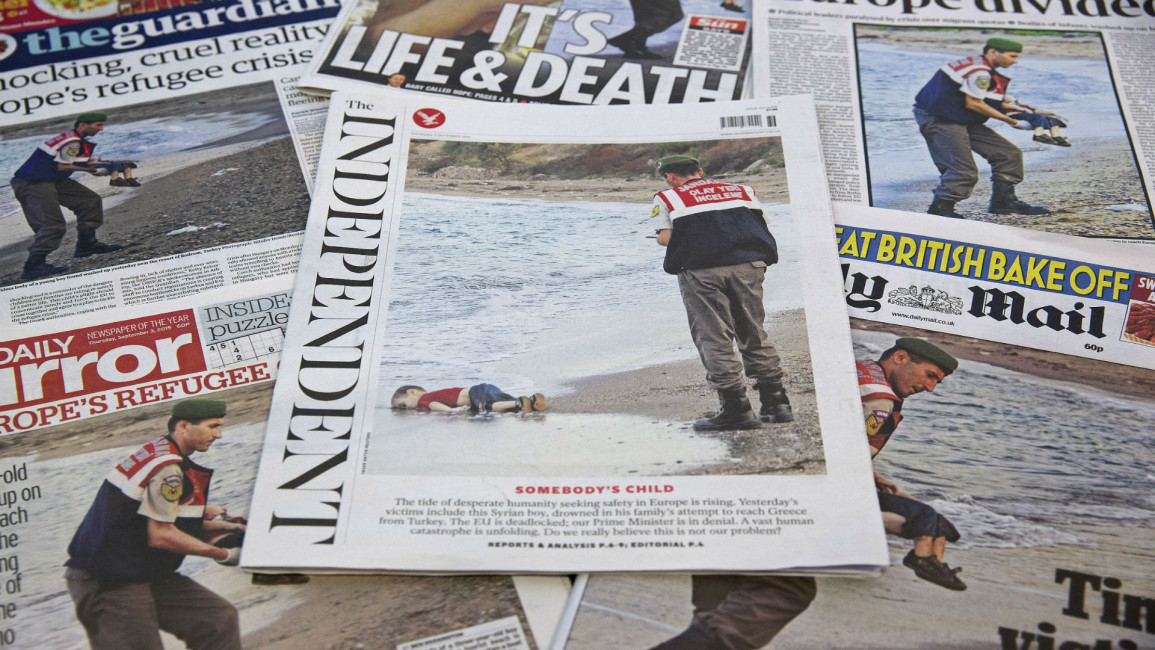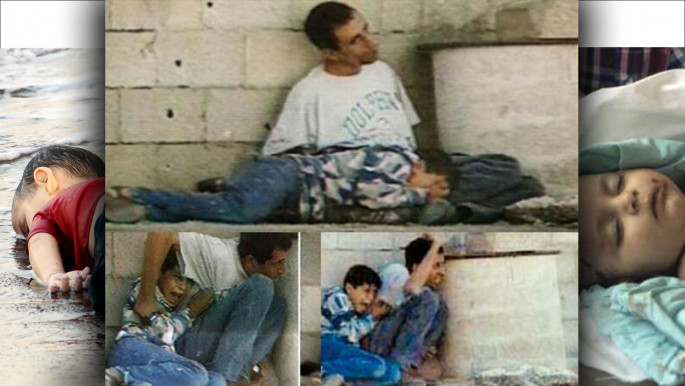
The shame
Meanwhile, popular responses to the deaths at sea have been a combination of protests calling for refugees to be let in and European citizens opening their homes to receive refugee families without waiting for government decisions.
The purpose of these words I write are not to elicit sympathy, conjure up feelings of victimhood or lament the fate of an Arab world that had embraced all Abrahamic faiths and was the birthplace of all civilisations that spread across the world. I will not say enough is enough or when.
| Aylan is not the first and at the current rate will not be the last |
We have worn these phrases out since 1947 and they have not been of any use in Palestine.
Instead, the land was lost, people were displaced and the only support offered was paltry sums of money and vacuous statements and slogans. It is merely another thorn in the side of the world. Aylan is not the first and at the current rate will not be the last.
We will not go back in history, as it is shameful enough that we started the new millennium with the death of Muhammad al-Durrah, followed by Iman Hajjo and thousands of anonymous victims in Palestine, Iraq, Egypt and Syria.
How many innocent smiles have been buried by the bombs of the Israeli occupation in Gaza, and how many laughs have been suppressed by tyranny in Iraq and how dreams have been turned into nightmares by Assad's barrels of death, which, on a daily basis, kill innocent children that are not captured on camera, and whose parents might not have a body to bury?
Every day we have an Aylan, an Iman and a Durrah. Cast your eyes over the Arab world and you will find a misery that resides in the eyes of people and a suffering and fear of the batons of the military that do show not mercy to the weak and fragile.
Take a look at the refugee camps in the Arab world and you will not be able to distinguish between a Palestinian, Syrian or Iraqi. Take a look at Europe, where Arab refugees are destitute on the borders, while they attempt to cross the barbed wire with their tender bodies to an unknown fate.
These scenes shame humanity. People in train stations and public parks, whose dignity has been equated to the beggars who previously occupied those spaces.
Look closely and you will see simple people searching for security and a dignified life. Look at the beaches and you will see bodies washed up by the waves and other bodies piled up in a truck on the Austrian border.
I don't know whether we should hate the sea or appreciate it. Should we hate the sea because it ended the dreams of thousands of simple people who wanted it to lead them to shores of safety?
Or should we appreciate the sea because it knows better than us that its depths would provide those tormented bodies more relief than anywhere on land?
| Look closely and you will see simple people searching for security and a dignified life |
The ocean has become the most generous host, receiving thousands of refugees - perhaps many more than those hosted by Arab countries. It relieved their exhausted bodies and sent their souls towards the sky to find peace.
Many others are still living in indignity in deformed homelands ravaged by division, making the thought of leaving an easy one. Syrians and Palestinian have nothing but the unknown.
Who would escape from their country? Who would leave their homeland and people to throw themselves into the unknown? After losing all hope of what they know, these people view the unknown as their final hope, which perhaps will be more merciful towards them than their own people.
The numbers we hear about are of people who have found no peace, hope, acceptance or place for themselves in the vast Arab world, now they wander through the streets.
The scene here is truly amazing. European leaders are trying to find a solution for those tormented souls, with calls to receive them and understand the situation despite its difficulty, while a few shy voices have complained about Europe's ability to deal with the masses of people arriving at its borders.
However, on the other side, there is nothing but silence.
"Syrian refugees have drowned," as a daily news item has no effect unless the numbers were unusually high. We respond by saying: "May God rest their souls."
I will not ask "when will something be done?" or say "enough is enough". I will not insult those people with futile pleas.
I just hope the thorn hurts this time - although I doubt it. The Arab body has had so many thorns in its side over the past many years that its armour of shame conceals any pain.
اقرأ النسخة العربية للمقال - العار.. وخزة في الخاصرة علّها تؤلم
Opinions expressed in this article remain those of the author and do not necessarily represent those of al-Araby al-Jadeed, its editorial board or staff.





